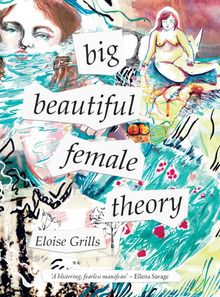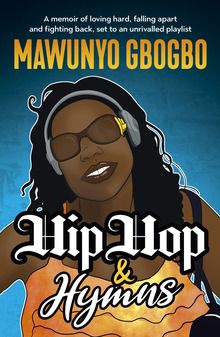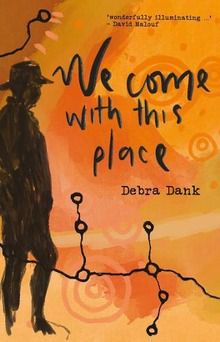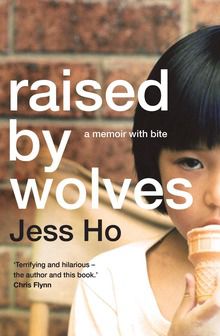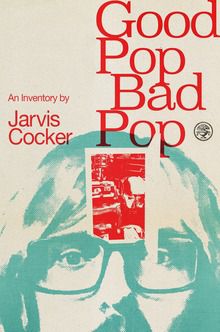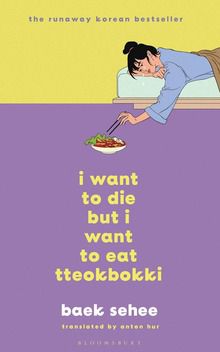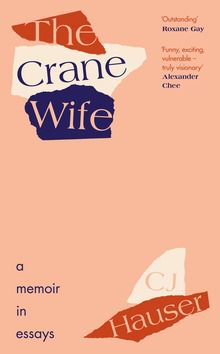This month we have a complete – and compelling – gamut of both local and international memoir. Blurring the lines between cultural studies, memoir, and graphic novel or visual diary - July releases offer unforgettable insight into another’s experiences of the world.
Big Beautiful Female Theory by Eloise Grills
big beautiful female theory is an anarchic and vital memoir unlike anything you’ve read before. Part feminist manifesto, part comic book, it is a carnivalesque exploration of the ways identity is formed through culture, relationships and the weight of society’s expectations.
With breathtaking honesty and fierce wit, Eloise Grills turns her life, her body and her mind into art, confronting what it means to grow up in an increasingly unfathomable world.
Hip Hop & Hymns by Mawunyo Gbogbo
Mawunyo Gbogbo is a church-going African Australian girl growing up in the sleepy mining town of Muswellbrook, NSW. At home, her parents argue all the time, and sibling rivalry runs deep. At primary school, Black Is Beautiful until a racist bully dares to tell her otherwise. But at high school, she falls in love with two things that will alter the course of her adult life: the seductive thrill of hip hop music and charismatic bad boy Tyce Carrington. Tyce also feels like an alien in Australia, despite his Aboriginality - or because of it.
When Mawunyo’s offered a chance to further her budding media career in New York City at the Bible of hip hop, The Source magazine, she throws herself headlong into the city’s heady buzz and hustle - but even as it lures her in, it threatens to derail her dreams.
We Come with This Place by Debra Dank
There is great pain in these pages, and anger at injustice, but also great love, in marriage and in family, and for the land. Dank faces head on the ingrained racism, born of brutal practice and harsh legislation, that lies always under the skin of Australia, the racism that calls a little Aboriginal girl names and beats and rapes and disenfranchises the generations before hers. But overwhelmingly this is a book about strong, beloved parents and grandparents, guiding and teaching their children and grandchildren what country means, about joyful gatherings and the pleasures of eating food provided by the place that nourishes them, both spiritually and physically.
A profound tribute to family and the Gudanji Country to which Debra Dank belongs, but also much more.
Raised by Wolves by Jess Ho
Growing up Cantonese in the racist outer suburbs was hard enough for Jess Ho, but add in a dysfunctional family who only ever made peace over food (and then only until the bill arrived), and it was clear that a normal life was never on the menu. They emerged from their childhood with two important traits: a major psychological complex, and a kick-arse palate. Both would help them fit right into the messy world of Melbourne’s food scene.
In hospitality Jess found their new family, a bunch of outsiders who shared their lust for life and appetite for destruction. As the Australian food scene exploded, fuelled by a thirst for the sort of ‘exotic’ foods they’d grown up on, Jess thrived, helping to create iconic venues and becoming one of the most influential voices in Australia’s bar and restaurant scene. But over time they realised that the industry they loved had its own dysfunctions.
Good Pop, Bad Pop by Jarvis Cocker
What if the things we keep hidden say more about us than those we put on display? We all have a random collection of the things that made us - photos, tickets, clothes, souvenirs, stuffed in a box, packed in a suitcase, crammed into a drawer. When Jarvis Cocker starts clearing out his loft, he finds a jumble of objects that catalogue his story and ask him some awkward questions: Who do you think you are? Are clothes important? Why are there so many pairs of broken glasses up here?
This is the hard evidence of Jarvis’s unique life, Pulp, 20th century pop culture, the good times and the mistakes he’d rather forget. And this accumulated debris of a lifetime reveals his creative process - writing and musicianship, performance and ambition, style and stagecraft.
I Want to Die but I Want to Eat Tteokbokki by Baek Sehee (translated by Anton Hur)
Baek Sehee is a successful young social media director at a publishing house when she begins seeing a psychiatrist about her - what to call it? - depression? She feels persistently low, anxious, endlessly self-doubting, but also highly judgemental of others. She hides her feelings well at work and with friends; adept at performing the calmness, even ease, her lifestyle demands. The effort is exhausting, overwhelming, and keeps her from forming deep relationships. This can’t be normal.
But if she’s so hopeless, why can she always summon a desire for her favourite street food, the hot, spicy rice cake, tteokbokki? Is this just what life is like?
The Crane Wife by Christina Joyce Hauser
Ten days after calling off her wedding, CJ Hauser went on an expedition to study the whooping crane. After a week wading through the gulf, she realised she had almost signed up to live somebody else’s life.
In this intimate, frank and funny memoir in essays, CJ Hauser releases herself from her story of ‘how life was supposed to be’. She goes looking for more honest ways of living, for new definitions of love. She kisses internet strangers, officiates a wedding, visits a fertility clinic. She rereads Rebecca in the house her new boyfriend shared with his ex-wife and rewinds Katharine Hepburn in The Philadelphia Story to ask whether you can ever have a fresh start with an old love.


